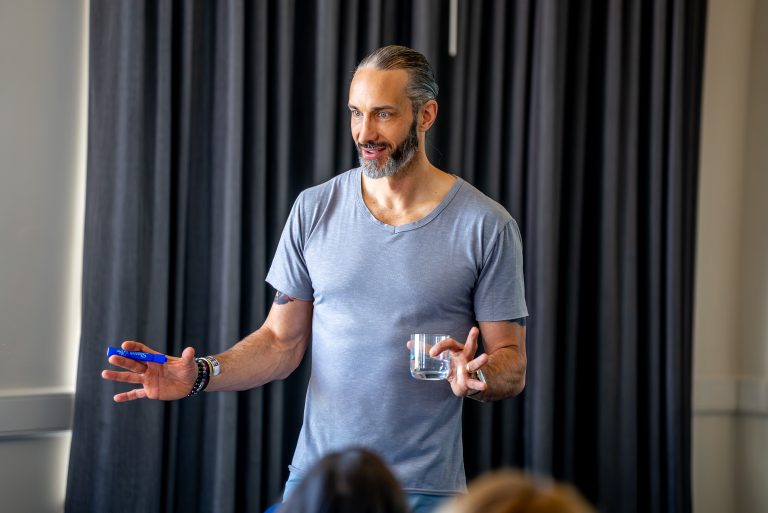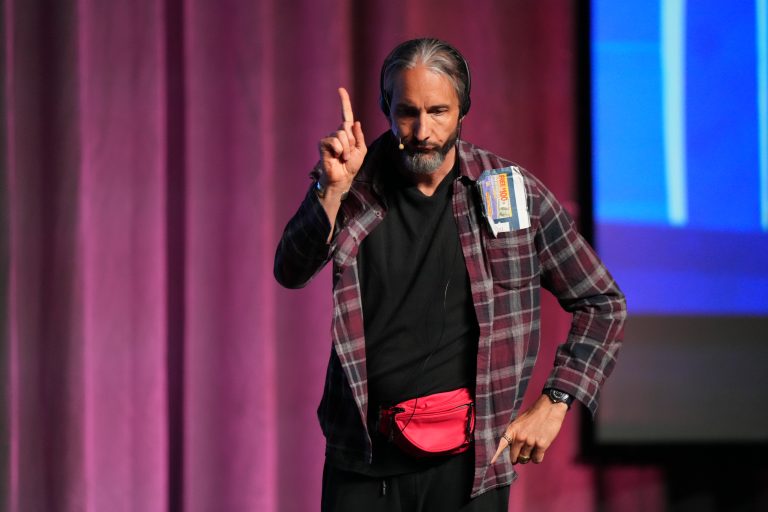Retirement was a great idea in the Industrial Age. It was a different time, a time of brawn. People were working dangerous jobs. Others were in assembly lines working mundane, tedious jobs.
When someone is in a career they hate or a job where they feel no other purpose than getting a paycheck, retirement is an appealing proposition.
But in the Information Age, does it make sense to do things we hate for pay, to live a better life “someday”?
Now, there are still plenty of jobs that are physically demanding and great to retire from. If your body is breaking down or you are constantly away from your family or simply don’t enjoy any aspect of what you do, retirement is one solution.
Another solution could be investing in yourself to create new skill sets. Dedicating part of your day or week to discovering new possibilities, discover a new career.
What could you remove from your life to find time to find yourself, your best life, and a better way to make money?
Do an inventory of your calendar, of your daily activities. What can you eliminate to find time for yourself? Can you find fifteen minutes, twenty minutes, or an hour each day?
You may have bills to pay and pressures you are facing that diminish your energy and make you feel limited with your options.
So how would you finance or fund this next phase?
It could make sense to stop funding your retirement plan, even temporarily, to invest in yourself. To improve your quality of life today or reduce your loans and improve your cash flow.
What if the model you are following now, is working against you?
What if you were investing for thirty years only to find you were following a faulty model?
The main message we receive when it comes to retirement planning is to scrimp and save, budget and defer, without any consideration for cash flow.
What if you retired from the things you hate and found more fulfilling work that you enjoyed or even loved?
What would it take?
What is your first step?
The objective of having enough money coming in each month even if you aren’t actively working for that money is great. But instead of waiting for retirement, consider creating economic independence much sooner with a different methodology.
Economic independence is having enough recurring revenue, a.k.a. “cash flow,” from assets to cover your expenses. Now you have a choice in what you do each day.
But rather than stop working, why not swing for the fences in a vision that matters to you, in the life you want to live along the way?
Retirement is a destination. Economic independence is an enhancement and accelerator on the journey.
Retirement relies on an accumulation strategy. Rarely considering cash flow along the way, the message is to set money aside, take calculated (but high) risk, and wait for decades.
You’ve heard it all before: It takes money to make money. High risk equals high return. You’re in it for the long haul. These are the battle cries for retirement.
The retirement equation is:
Money x Rate x Time
Accumulate. Set it and forget it. Invest early, often, and always.
This is the method most are taught, which is mired in myths, dogmatic in nature, and downright dangerous. It is at odds with our best life, with enjoying life along the way, at the expense of today.
It is a strange cry for discipline and patience, but without accountability. When things don’t go as planned, you’ll hear things like, “The market is on sale,” and “Dollar cost average.”
Marketing can give us a false sense of peace and security devoid of economics.
How are your funds really doing? After tax, after fees, after dips and losses? What impact has inflation had on your purchasing power?
Retirement is a moving target. Retirement is at risk with every interest rate change, tax hike, or economic downturn justifying the printing of money.
Retirement planning is like preparing for a marathon by doing everything other than running.
To retire requires assets creating cash flow. But how much cash flow does retirement planning create along the way? How does this prepare you or set you up for success? It doesn’t.
Economic Independence is about cash flow, not eventually, but along the way. Today. For some, this may mean paying off loans, and for others, it may mean investing. It depends on your ability, opportunities, and cost of money.
Cost of money is your highest, sustainable net return on investment or the highest rate at which you borrow, whichever is greater.
Getting twenty percent in one year doesn’t mean this is your cost of money. What would happen the year after, or the year after? Sustainability is key. What is likely, predictable, and with minimal risk?
As an example, you always pay interest.
If you pay cash, you forfeit the right to earn interest.
If you borrow, you pay the bank interest.
Which is the greater cost? Not only economically, but from an emotional standpoint. If borrowing creates stress, do all you can to avoid it. If borrowing creates efficiency and doesn’t infringe on your peace of mind, consider it.
How you create economic independence depends on your preferences combined with an effective methodology.
Should you invest or pay off loans? It depends.
What can you earn versus what will you pay?
How will it impact your mindset?
Achieving economic independence is a completely different methodology than retirement planning. It is not about accumulation, but acceleration.
Cash flow.
Recurring revenue.
Measurable, regular ongoing results.
95 percent of the time, retirement requires, and waits on programs to supplement cash flow, like social security or pensions.
But pensions have failed so many people. Working for decades then having their company declare bankruptcy. Dangerous.
Social security funds are immediately borrowed from the government, every dollar. Furthermore, since 2020 there is more money leaving Social Security than comes in. Dangerous.
People are living longer, much longer than when social security was created. Living longer, but reliant on substantial health care. Living longer, but unhealthy. Dangerous.
Rather than try to save ten percent of your income, chase a ten percent return, and wait for thirty years, focus on economic independence instead.
Once you are economically independent, you won’t be relegated to scrimping to save ten percent, you can reinvest all of your active income and build more assets, generating even more cash flow. It’s a 10x advantage.
Economic independence is based upon velocity and acceleration, not accumulation.
You can achieve it within ten years. People have done it in a year, three years, or five. It depends on where you are starting and your intention and attention combined with accountability.
Before budgeting and cutting back, begin by plugging financial leaks. Are you tipping the government by overpaying tax? Are you overpaying on interest? Do you have nonperforming fees with your investments? Have you properly structured your insurance?
Next, set up a separate account. With the newfound money from being more efficient with your money, capture it. This may be a money market, a savings account, or even cash value insurance, but set up an automated system to pay yourself first.
Then determine how much money is required each month for your basic lifestyle. This is different than financial freedom. Financial freedom is when money is no longer the primary reason or excuse you would do or not do something. Again, economic independence is when you have enough cash flow to cover your expenses.
Now do an assessment. Where do you have lazy assets? Those assets that aren’t currently creating cash flow. Can you create cash flow with the asset?
Depending on the interest you are earning, versus the interest on the loans you have, the quickest way may be to reallocate funds and pay off a loan.
And then you can do one of the most critical pieces in creating economic independence, making more money. Right back to where we started. Invest in yourself. Develop your ability to serve more people, or impact people more deeply, and simply add the most value. Rather than fund retirement plans, develop your most critical, valuable skills.
Don’t let retirement ruin your life today. Or delay your best life. Or prevent you from investing in yourself.
Find money that is slipping through the cracks and capture that wealth. Reverse engineer how to create enough cash flow to cover your expenses. Where possible, create cash flow with your existing assets. Invest in yourself to improve your quality of life, and your skills, as well as cash-flowing investments.
This is the key to economic independence.
Create the life you don’t want to retire from.
Ready to Stop Guessing With Your Money?
Most financial advice tells you to save more and spend less. That’s a losing game. Garrett’s free book Killing Sacred Cows reveals why the conventional wisdom is costing you—and what to do instead.
Do it yourself? Try the free Relationship Currency tool on X1 Wealth.
Frequently Asked Questions
Why should we retire retirement?
Because retirement was designed for dangerous, soul-sucking jobs in the Industrial Age. In the Information Age, the goal should be building a life you love—not escaping one you hate for 40 years.
Is retirement a bad goal?
If your body is breaking down or you hate your work, retirement makes sense. But if you can design work you love that produces value, why would you want to quit? The goal is to live wealthy now, not defer life until ‘someday.’
What is the alternative to retirement?
Building a life you don’t want to retire from. Do work that aligns with your Soul Purpose, creates value, and generates cash flow. Enjoy life along the way instead of deferring joy for decades.
Can I retire if I love my work?
You can, but why would you? If your work brings joy, fulfillment, and value, retirement is just quitting for no reason. The real win is designing work that energizes you—so you never feel the need to escape.




2 thoughts on “It’s Time to Retire Retirement”
I really resonated with this statement and have seen it’s truth in my own journey
“Retirement planning is like preparing for a marathon by doing everything other than running. To retire requires assets creating cash flow. But how much cash flow does retirement planning create along the way? How does this prepare you or set you up for success? It doesn’t.”
Gratefully, Dylan
Pretty decent way to think about it.